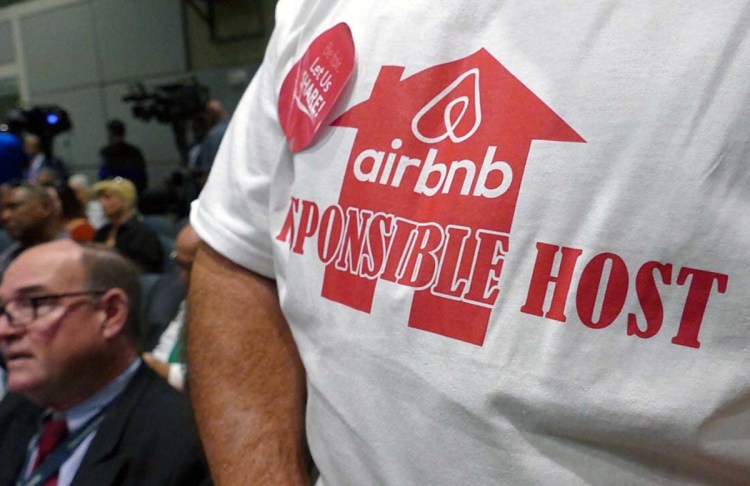The city wants to criminalize operating such a business for more than two days without a license.
In its ongoing battle against illegal short-term rentals, Miami Beach has developed tough tactics: $20,000 fines, late-night enforcement visits, and a tool to help property owners screen potential tenants for violations of the city’s short-term rental laws.
But none of it has been enough to control the city’s flourishing illegal rentals market. Now, Miami Beach wants to criminalize operating a business – such as a short-term rental – for more than two days without a license. The city is also restricting how short-term rentals are advertised on platforms like Airbnb and HomeAway.
At a meeting Wednesday, commissioners voted to criminalize operating a business without a license after the second offense. The violation is currently punishable by a $1,000 civil fine, but if the new proposal passes a final vote in October, violators could face up to 60 days in jail for a third strike. Each day operating without a license is considered a separate offense, so unlicensed short-term rental hosts could be arrested for renting a property for three days or more. Miami Beach prohibits rentals of six months or less in most residential areas.
Mayor Dan Gelber, who proposed the measure, said that criminalizing a third violation would give the city an extra tool to go after the operators of any type of unlicensed business. He noted that a Miami-Dade County ordinance already makes it a misdemeanor to operate without a license, but said the county ordinance is not often enforced in Miami Beach. The city’s existing ordinance criminalizes unlicensed operations only for continued violations of 30 days or more, which can be difficult to enforce.
“I felt like our enforcement ought to have different parts of the tool kit available,” Gelber said. “This gives our folks the ability to do a gradual enforcement if they want to or a more immediate enforcement if they want to.”
Commissioner Michael Góngora, who opposes the measure, called it “very scary.”
“There are a lot of people that operate businesses out of their house, that operate businesses on the street, and if I’m reading this correctly … each day that the person operates is a new violation so technically within three days they could be in jail,” he said.
The commission voted 4-3 to pass the measure in an initial vote. A final vote will be taken Oct. 17.
The City Commission also passed new rules requiring platforms that advertise short-term rentals to post listings only if they include business license and resort tax registration numbers – information proving that the property owner has registered with the city. Platforms will be fined $1,000 for a first offense and up to $5,000 for repeated violations. City officials argue that the restrictions and fines are necessary to curb illegal rentals, which they say diminish the quality of life in residential neighborhoods.
Platforms that agree to use a technology known as “geofencing” or “geocoding” to block property owners from listing properties located within a prohibited area are exempt from the new rules.
Airbnb, the leader in short-term rentals, said the company disagrees with the new rules.
“We are disappointed by the city’s decision to double down on a law that even they admit isn’t working,” Tom Martinelli, the company’s Florida policy director, said in a statement.
The new restrictions also apply to property owners, who must now include their business license and resort tax numbers on all listings advertising short-term rentals. Otherwise, according to the ordinance, the city will assume that the rental hasn’t been registered. Violators will receive a written warning after a first offense, but could face fines of at least $5,000 for repeated violations.
In South Portland, the City Council voted 5-2 earlier this month to hold a referendum on Nov. 6 that will let voters decide whether to keep a short-term rental ordinance enacted this summer.
The modified short-term rental regulations, based on original rules passed by a 6-1 vote in February, retained at their core a ban on unhosted or non-owner-occupied short-term rentals in all residential neighborhoods.
Send questions/comments to the editors.



Comments are no longer available on this story